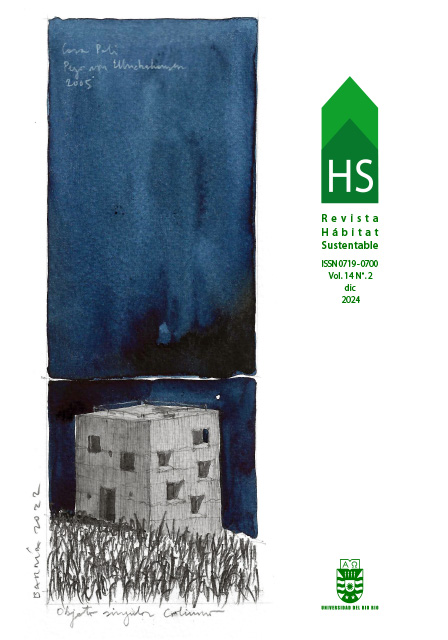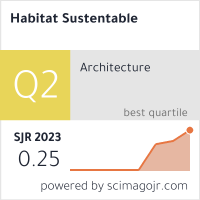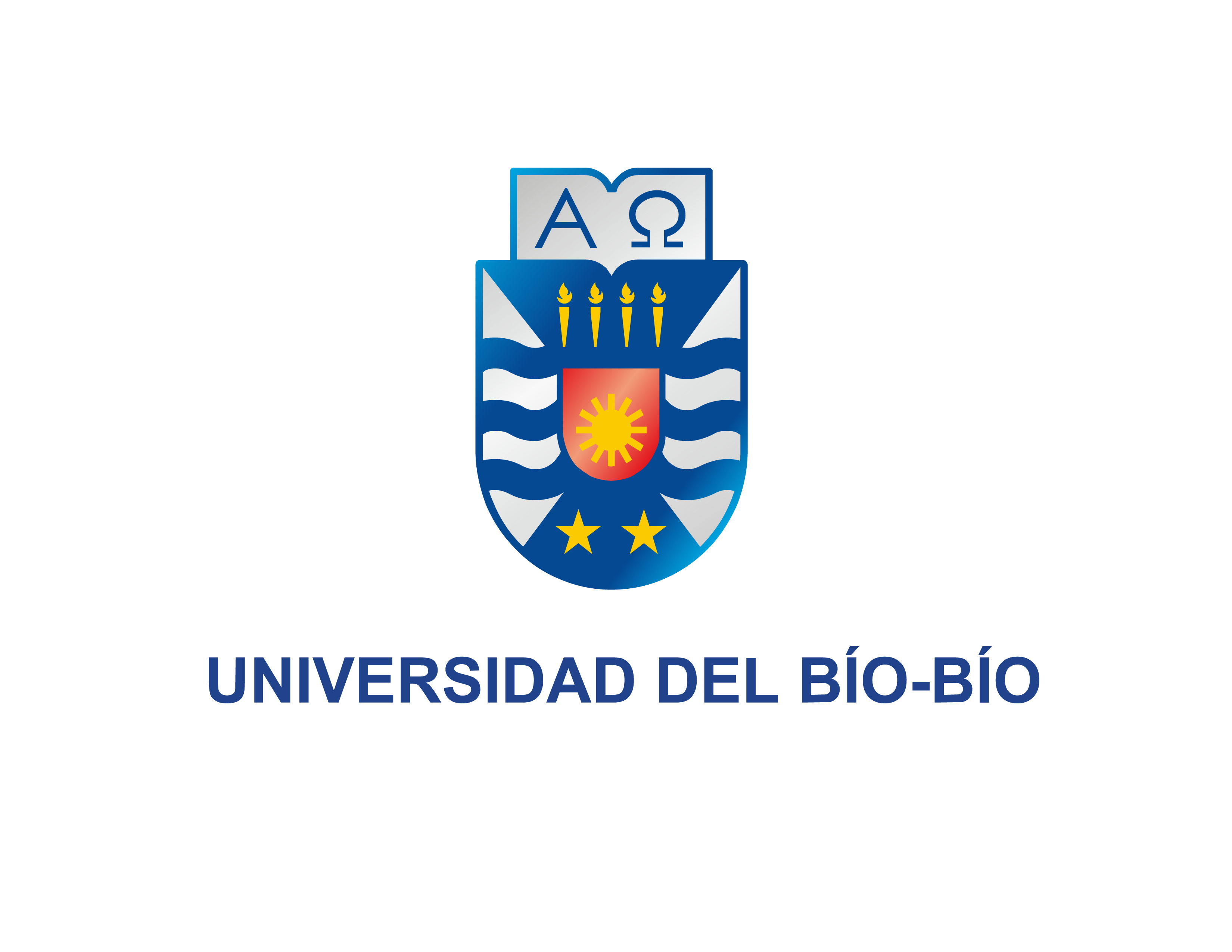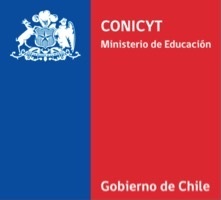Biocomposite of banana fiber, peanut shells from Manabí (Ecuador) and recycled expanded polystyrene
DOI:
https://doi.org/10.22320/07190700.2024.14.02.09Keywords:
recycling, natural fibers, panel, expanded polystyreneAbstract
This research involves the development of a thermoplastic polymer biocomposite in a matrix of recycled expanded polystyrene reinforced with banana pseudostem fiber and crushed peanut shells. Six models were produced with different doses, of which the one that obtained the best result was the last one, with a content of 63% EPS, 25% banana fiber (40 mm), and 12% crushed peanut shells (1 to 3 mm). In the bending test, it achieved an MOR of 12 N/mm2 and an MOE of 55 N/mm2; the compressive strength was 8.60 N/mm2; moisture absorption was 10%; and in the thermal conductivity test, it had a value of 0.095 W/m‧k, which means it has an adequate insulating capacity. The values obtained comply with the Ecuadorian standard INEN 3110 for particleboards. This work shows the capacity of the materials used to produce different light, resistant, insulating components that can be used in buildings.
Downloads
References
ABD-ELRAHMAN, M. H., SAAD AGWA, I., MOSTAFA, S. A., & YOUSSF, O. (2023). Effect of utilizing peanut husk ash on the properties of ultra-high strength concrete. Construction and Building Materials, 384, 131398. https://doi.org/10.1016/J.CONBUILDMAT.2023.131398
ADDIS, L. B., SENDEKIE, Z. B., HABTU, N. G., SCHUBERT, D. W., ROETHER, J. A., & BOCCACCINI, A. R. (2023). Characterization of False Banana Fiber as a Potential Reinforcement Material for Geopolymer Composites in B.H. Woldegiorgis, K. Mequanint, M.Z. GETIE, E.G., MULAT, A., & ALEMAYEHU ASSEGIE, (Eds), Advancement of Science and Technology. Green Energy and Technology (pp.49–63). Springer, Cham. https://doi.org/10.1007/978-3-031-33610-2_3/TABLES/2
ADDIS, L. B., SENDEKIE, Z. B., HABTU, N. G., SCHUBERT, D. W., ROETHER, J. A., & BOCCACCINI, A. R. (2024). False banana fiber reinforced geopolymer composite – A novel sustainable material. Ceramics International, 50(13-Part b), 24442-24450. https://doi.org/10.1016/J.CERAMINT.2024.04.177
AENOR. (2024). UNE-EN 312:2010 | Normas AENOR. Tableros de Partículas. Especificaciones. https://tienda.aenor.com/norma-une-en-312-2010-n0046341
AGUILLÓN, B., CABRERA, D., LAZO, M., ADRIÁN, E., CARRASCO, M., MEDINA-PERILLA, J., VERA-VILLALOBOS, J., & RIGAIL-CEDEÑO, A. (2024). Sorbitol glycidyl ether Epoxy/Brewer’s spent grain biocomposite for fiberboard applications. Case Studies in Chemical and Environmental Engineering, 9, 100705. https://doi.org/10.1016/J.CSCEE.2024.100705
AHMAD, T., & DANISH, M. (2018). Prospects of banana waste utilization in wastewater treatment: A review. Journal of Environmental Management, 206, 330–348. https://doi.org/10.1016/J.JENVMAN.2017.10.061
AKCALI, I. D., INCE, A., & GUZEL, E. (2006). Selected Physical Properties of Peanuts. International Journal of Food Properties, 9(1), 25-37. https://doi.org/10.1080/10942910500471636
AKINDAPO, J. O., BINNI, U. A., & SANUSI, O. M. (2015). Development of Roofing Sheet Material Using Groundnut Shell Particles and Epoxy Resin as Composite Material. American Journal of Engineering Research (AJER), 4(6), 165–173. https://www.ajer.org/papers/v4(06)/T04601650173.pdf
AKINYEMI, B. A., & DAI, C. (2020). Development of banana fibers and wood bottom ash modified cement mortars. Construction and Building Materials, 241, 118041. https://doi.org/10.1016/j.conbuildmat.2020.118041
ALI, B., AZAB, M., AHMED, H., KURDA, R., EL OUNI, M. H., & ELHAG, A. B. (2022). Investigation of physical, strength, and ductility characteristics of concrete reinforced with banana (Musaceae) stem fiber. Journal of Building Engineering, 61, 105024. https://doi.org/10.1016/j.jobe.2022.105024
ATTIA, M. M., AL SAYED, A. A. K.-A., TAYEH, B. A., & SHAWKY, S. M. M. (2022). Banana agriculture waste as eco-friendly material in fibre-reinforced concrete: An experimental study. Advances in Concrete Construction, 14(5), 355–368. https://doi.org/10.12989/acc.2022.14.5.355
BALDA, S., SHARMA, A., CAPALASH, N., & SHARMA, P. (2021). Banana fibre: a natural and sustainable bioresource for eco-friendly applications. Clean Technologies and Environmental Policy, 23, 1389–1401. https://doi.org/10.1007/s10098-021-02041-y
BELKADI, A. A., AGGOUN, S., AMOURI, C., GEUTTALA, A., & HOUARI, H. (2018). Effect of vegetable and synthetic fibers on mechanical performance and durability of Metakaolin-based mortars. Journal of Adhesion Science and Technology, 32(15), 1670–1686. https://doi.org/10.1080/01694243.2018.1442647
BENÍTEZ, A. N., MONZÓN, M. D., ANGULO, I., ORTEGA, Z., HERNÁNDEZ, P. M., & MARRERO, M. D. (2013). Treatment of banana fiber for use in the reinforcement of polymeric matrices. Measurement, 46(3), 1065–1073. https://doi.org/10.1016/J.MEASUREMENT.2012.11.021
BINICI, H., & AKSOGAN, O. (2017a). Insulation material production from onion skin and peanut shell fibres, fly ash, pumice, perlite, barite, cement and gypsum. Materials Today Communications, 10, 14–24. https://doi.org/10.1016/J.MTCOMM.2016.09.004
BINICI, H., & AKSOGAN, O. (2017b). Insulation material production from onion skin and peanut shell fibres, fly ash, pumice, perlite, barite, cement and gypsum. Materials Today Communications, 10, 14–24. https://doi.org/10.1016/J.MTCOMM.2016.09.004
CHATTAVIRIYA, P., SUPAWANTANAKUL, D., SANGSIRIMONGKOLYING, R., & SUA-IAM, G. (2022). Banana Fibers as a Sustainable Acoustic Absorbing Materials: A Review. Trends In Sciences, 19(11), 4498. https://doi.org/10.48048/tis.2022.4498
CHENRAYAN, V., GEBREMARYAM, G., SHAHAPURKAR, K., MANI, K., FOUAD, Y., KALAM, M. A., MUBARAK, N. M., SOUDAGAR, M. E. M., & ABUSAHMIN, B. S. (2023). Experimental and numerical assessment of the flexural response of banana fiber sandwich epoxy composite. Scientific Reports, 13(1), 18156. https://doi.org/10.1038/S41598-023-45460-1/FIGURES/15
FAOSTAT. (n.d.). FAOSTAT. Retrieved March 1, 2023, from https://www.fao.org/faostat/en/#data/QCL/visualize
GATANI, M., ARGÜELLO, R., & SESÍN, S. (2010). Materiales compuestos de cáscaras de maní y cemento. Influencia de diferentes tratamientos químicos sobre las propiedades mecánicas. Materiales de Construcción, 60(298), 137–147. https://doi.org/10.3989/MC.2010.46908
GIRIMURUGAN, R., SHILAJA, C., PRADEEP, G. M., MAHESKUMAR, P., & AUGASTIN SANTHIYAGU, I. (2022). An experimental study on compressive properties of high-density polyethylene-nano alumina-groundnut shell hybrid composites. Materials Today: Proceedings, 68(6), 2226–2232. https://doi.org/10.1016/J.MATPR.2022.08.437
GULER, C., COPUR, Y., & TASCIOGLU, C. (2008). The manufacture of particleboards using mixture of peanut hull (Arachis hypogaea L.) and European Black pine (Pinus nigra Arnold) wood chips. Bioresource Technology, 99(8), 2893–2897. https://doi.org/10.1016/J.BIORTECH.2007.06.013
IMMANUEL DURAI RAJ, J., ARUN VASANTHA GEETHAN, K., JOHN RAJAN, A., & VIJAY ANANTH, S. (2023). Characterization of epoxy resin-based banana fiber reinforced composite with waste CD powder filler. Materials Today: Proceedings, 90(1), 19-23. https://doi.org/10.1016/J.MATPR.2023.04.152
ISO 8302:1991 - Thermal insulation — Determination of steady-state thermal resistance and related properties — Guarded hot plate apparatus. (n.d.). Retrieved June 8, 2024, from https://www.iso.org/es/contents/data/standard/01/54/15422.html?browse=tc
JAYAPRABHA, J. S., BRAHMAKUMAR, M. & MANILAL, V. B. (2011). Banana Pseudostem Characterization and Its Fiber Property Evaluation on Physical and Bioextraction. Journal of Natural Fibers, 8(3), 149–160. https://doi.org/10.1080/15440478.2011.601614
KALANGI, C., ANTONY PRABU, D., SUJIN JOSE, A., & JANI, S. P. (2022). Experimental characterization of banana fiber reinforced polyester composites. Materials Today: Proceedings, 60(3), 2236–2239. https://doi.org/10.1016/J.MATPR.2022.03.232
KARUPPUCHAMY, A., RAMYA, K., y SILVA, R. (2024). Novel banana core stem fiber from agricultural biomass for lightweight textile applications. Industrial Crops and Products, 209, 117985. https://doi.org/10.1016/j.indcrop.2023.117985
KESIKIDOU, F., & STEFANIDOU, M. (2019). Natural fiber-reinforced mortars. Journal of Building Engineering, 25, 100786. https://doi.org/10.1016/j.jobe.2019.100786
KORNIEJENKO, K., FRĄCZEK, E., PYTLAK, E., & ADAMSKI, M. (2016). Mechanical Properties of Geopolymer Composites Reinforced with Natural Fibers. Procedia Engineering, 151, 388–393. https://doi.org/10.1016/J.PROENG.2016.07.395
KUMAR, P. S., PUSHPAVALLI, S., KERAN, D. A., SHUPRAJHAA, T., SIVANANTH, C., RENGANATHAN, R., KANDALLU JAYARAMAN, J., BALAKRISHNAN, P., & UMA, S. (2022). Deciphering functional characteristics and in-vitro bioactive properties of banana central core stem powder. Food Chemistry, 397, 133828. https://doi.org/10.1016/J.FOODCHEM.2022.133828
LAMICHHANE, N., LAMICHHANE, A., & GYAWALI, T. R. (2024). Enhancing mechanical properties of mortar with short and thin banana fibers: A sustainable alternative to synthetic fibers. Heliyon, 10(10), e30652. https://doi.org/10.1016/J.HELIYON.2024.E30652
LAVERDE, V., MARIN, A., BENJUMEA, J. M., & RINCÓN ORTIZ, M. (2022). Use of vegetable fibers as reinforcements in cement-matrix composite materials: A review. Construction and Building Materials, 340, 127729. https://doi.org/10.1016/j.conbuildmat.2022.127729
MARTÍNEZ, C., & LAINES, J. (2013). POLIESTIRENO EXPANDIDO (EPS) Y SU PROBLEMÁTICA AMBIENTAL. Kuxulcab, Revista de Divulgación, 19(36), 63-. https://doi.org/10.19136/kuxulkab.a19n36.339
MENDES, C. O. B., & DE ARAÚJO NUNES, M. A. (2022). Acoustic performance of the banana pseudostem fiber. Applied Acoustics, 191, 108657. https://doi.org/10.1016/J.APACOUST.2022.108657
MO, K. H., BONG, C. S., ALENGARAM, U. J., JUMAAT, M. Z., & YAP, S. P. (2017). Thermal conductivity, compressive and residual strength evaluation of polymer fibre-reinforced high volume palm oil fuel ash blended mortar. Construction and Building Materials, 130, 113–121. https://doi.org/10.1016/j.conbuildmat.2016.11.005
PREETHI, P., & MURTHY, B. G. (2013). Propriétés physiques et chimiques des fibres de banane extraites de cultivars commerciaux de bananes cultivés dans l'État du Tamilnadu, Agrotechnologie. https://doi.org/10.4172/2168-9881.S11-008
NGUYEN, T. A., & NGUYEN, T. H. (2021). Banana Fiber-Reinforced Epoxy Composites: Mechanical Properties and Fire Retardancy. International Journal of Chemical Engineering, 2021(1), 1973644. https://doi.org/10.1155/2021/1973644
OGUNSILE, B. O., & OLADEJI, T. G. (2016). Utilization of banana stalk fiber as reinforcement in low-density polyethylene composite, Revista Materia, 21(4), 953–963. https://doi.org/10.1590/S1517-707620160004.0088
POLETTO, M., DETTENBORN, J., ZENI, M., & ZATTERA, A. J. (2011). Characterization of composites based on expanded polystyrene wastes and wood flour. Waste Management, 31(4), 779–784. https://doi.org/10.1016/J.WASMAN.2010.10.027
PRABHAKAR, M. N., SHAH, A. U. R., RAO, K. C., & SONG, J. IL. (2015). Mechanical and thermal properties of epoxy composites reinforced with waste peanut shell powder as a bio-filler. Fibers and Polymers, 16, 1119–1124. https://doi.org/10.1007/s12221-015-1119-1
PREM CHAND, R., RAVITEJ, Y. P., CHANDRASEKHAR, K. M., ADARSHA, H., SHIVAMANI KANTA, J. V., VEERACHARI, M., RAVI KUMAR, R., & ABHINANDAN. (2021). Characterization of banana and E glass fiber reinforced hybrid epoxy composites. Materials Today: Proceedings, 46(18), 9119–9125. https://doi.org/10.1016/J.MATPR.2021.05.402
RAMPRASATH, B., MURUGESAN, R., BANERJEE, A., ANAND, A., & SHASHANK. (2020). A Comparative Study of Sandwich and Hybrid Sandwich Composites using Jute and Kevlar Fibers. IOP Conference Series: Materials Science and Engineering, 912(5), 052031. https://doi.org/10.1088/1757-899X/912/5/052031
RAMU, S., SENTHILKUMAR, N., & DEEPANRAJ, B. (2023). Experimental investigation on alkali-treated (NaOH) groundnut shell (Arachis hypogaea L.) and rick husk (Oryza sativa) particle epoxy hybrid composites. Materials Today: Proceedings. https://doi.org/10.1016/J.MATPR.2023.03.171
SADA, B. H., AMARTEY, Y. D., & BAKOC, S. (2013). An Investigation into the use of groundnut as fine aggregate replacement. Nigerian Journal of Technology, 32(1), 54–60. https://www.ajol.info/index.php/njt/article/view/87225
SARAVANAN, A. K., RAJENDRA PRASAD, A., MURUGANANDAM, D., SARAVANAN, G., VIVEKANANDAN, S., & SUDHAKAR, M. (2020). Study on natural fiber composites of jute, pineapple and banana compositions percentage of weight basis for thermal resistance and thermal conductivity. Materials Today: Proceedings, 37(2), 147–151. https://doi.org/10.1016/J.MATPR.2020.04.662
SATHIPARAN, N., ANBURUVEL, A., & SELVAM, V. V. (2023). Utilization of agro-waste groundnut shell and its derivatives in sustainable construction and building materials – A review. Journal of Building Engineering, 66, 105866. https://doi.org/10.1016/J.JOBE.2023.105866
SEGURA, D., NOGUEZ, R., & ESPÍN, G. (2007). Contaminación ambiental y bacterias productoras de plásticos biodegradables. Biotecnología, 14, 361-371. https://www.researchgate.net/profile/Raul-Noguez/publication/242144167_Contaminacion_ambiental_y_bacterias_productoras_de_plasticos_biodegradables/links/565cc57f08aefe619b253fd3/Contaminacion-ambiental-y-bacterias-productoras-de-plasticos-biodegradables.pdf
SENTHILKUMAR, K., SIVA, I., RAJINI, N., WINOWLIN JAPPES, J. T., & SIENGCHIN, S. (2018). Mechanical characteristics of tri-layer eco-friendly polymer composites for interior parts of aerospace application. Sustainable Composites for Aerospace Applications, 35–53. https://doi.org/10.1016/B978-0-08-102131-6.00003-7
UNE 56535:1977. (2017, Retrieved June 8. 2024,). Características físico-mecánicas de la madera. Determinación de la resistencia a la compresión axial., from https://www.une.org/encuentra-tu-norma/busca-tu-norma/norma?c=N0006021
UNE-EN 196-1:2018. (2018, Retrieved June 8, 2024). Métodos de ensayo de cementos. Parte 1: Determinación de resistencias. https://www.une.org/encuentra-tu-norma/busca-tu-norma/norma?c=N0060675
UNE-EN 310:1994 (2019, Retrieved June 8, 2024). Tableros derivados de la madera. Determinación del módulo de elasticidad en flexión y de la resistencia a la flexión. (Versión oficial EN 310:1993). https://www.une.org/encuentra-tu-norma/busca-tu-norma/norma?c=N0008516
UNE-EN 317: 1994. (1994, Retrieved June 8, 2024). Tableros de partículas y tableros de fibras. Determinación de la hinchazón en espesor después de inmersión en agua. (Versión oficial EN 317:1993). https://www.une.org/encuentra-tu-norma/busca-tu-norma/norma?c=N0008533
UNE-EN 323: 1994. (1994, Retrieved June 8, 2024). Tableros derivados de la madera. Determinación de la densidad. (Versión oficial EN 323:1993). https://www.une.org/encuentra-tu-norma/busca-tu-norma/norma/?c=N0008540
WONGSA, A., KUNTHAWATWONG, R., NAENUDON, S., SATA, V., & CHINDAPRASIRt, P. (2020). Natural fiber-reinforced high calcium fly ash geopolymer mortar. Construction and Building Materials, 241, 118143. https://doi.org/10.1016/J.CONBUILDMAT.2020.118143
ZAABA, N. F., & ISMAIL, H. (2018). A Review on Peanut Shell Powder Reinforced Polymer Composites. 58(4), 349–365. https://doi.org/10.1080/03602559.2018.1471720
ZOUAOUI, Y., BENMAHIDDINE, F., YAHIA, A., & BELARBI, R. (2021). Hygrothermal and Mechanical Behaviors of Fiber Mortar: Comparative Study between Palm and Hemp Fibers. Energies, 14(21), 7110. https://doi.org/10.3390/en1421711
Downloads
Published
How to Cite
Issue
Section
License
Copyright (c) 2024 Eddie Efrén Echeverría-Maggi, Vicente Flores-Alés, Juan Jesús Martín-del-Río

This work is licensed under a Creative Commons Attribution-ShareAlike 4.0 International License.
The content of articles which are published in each edition of Habitat Sustentable, is the exclusive responsibility of the author(s) and does not necessarily represent the thinking or compromise the opinion of University of the Bio-Bio.
The author(s) conserve their copyright and guarantee to the journal, the right of first publication of their work. This will simultaneously be subject to the Creative Commons Recognition License CC BY-SA, which allows others to share-copy, transform or create new materials from this work for non-commercial purposes, as long as they recognize authorship and the first publication in this journal, and its new creations are under a license with the same terms.











 Scientific Information Program/Concurso Fondos de Publicación de Revistas Científicas 2018/ Proyecto Mejoramiento de Visibilidad de Revistas UBB (Código:FP180007).
Scientific Information Program/Concurso Fondos de Publicación de Revistas Científicas 2018/ Proyecto Mejoramiento de Visibilidad de Revistas UBB (Código:FP180007).





